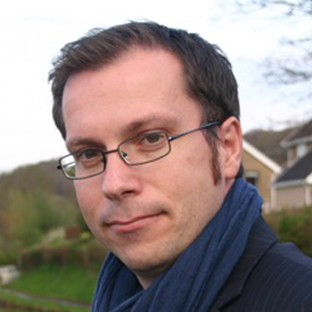The dominant neoliberal economic model, pursued by governments of all political persuasions across the UK and beyond for the last 30-40 years, has significantly increased the economic and social inequalities in our society. Today, the UK is one of the most unequal societies in the world. The impact of this has been most keenly felt in our post-industrial communities, places such as the South Wales Valleys and the North of England, as well as the poorer inner-city communities. So often held up as a global success story, London’s poverty rate currently stands at 27 percent.
In 2014, together with my colleague Dave Adamson, we undertook a pilot of our ‘Deep Place’ approach through a case study of the town of Tredegarat, the head of one of the South Wales Valleys. In our report, we argued that place can be a powerful mechanism to address two significant and interconnected social policy problems: how to overcome the inequitable distribution of wealth; and how to effectively adjust to a more environmentally sustainable economic model.
Four principle schools of thought influence our Deep Place approach:
- Social Exclusion Analysis, which provides an important mechanism for understanding why certain places become disconnected from the mainstream economy and society.
- Transition Theory, which connects global environmental conditions with local action.
- Total Place approaches to public service reform, which identify collective consumption of public services and a more collaborative relationship between the citizen and the local state.
- The Foundational Economy, which identifies an area of the economy where around 40 percent of the UK workforce is employed in providing services such as social care, utilities, telecommunications and food.
Deep Place is a methodical approach to better understanding the different challenges experienced by different communities, as well as particular opportunities to achieve more economically, socially, environmentally and culturally sustainable communities. It rejects the idea that one size fits all and does not believe there is one single ‘silver bullet’, such as an infrastructure project or a ‘Foreign Direct Investment’ solution.
Although Deep Place does not suggest that local economies should exist in total isolation, it nevertheless argues there should be a better balance. The primary role of the public sector should, however, be to support indigenous local economic development through an emphasis on the Foundational Economy. More localised economic activity within communities, based on an increased level of support for the development of the Foundational Economy, can help both eradicate poverty and achieve sustainability.
City regionalism is increasingly dominating economic priorities across the UK. Current approaches to city-region economic planning and governance tend, however, to be undertaken by rather remote and exclusive groups of economic and social elites. If any inclusive growth is to emerge from the city-regional model, then it must successfully engage a broader range of people and communities. It must also deliver a better balance of priorities.
Deep Place argues that governance for resilient and sustainable places should be inclusive and seek to engage local citizens in a process of meaningful co-production. This requires a very different perspective from the normal approach to power at community level and is dependent on a willing and open ability to share power and work for common objectives.
Following on from the Tredegar Study, my colleague Dave Adamson is using the Deep Place approach in Australia. We are also working together with Caerphilly County Borough Council to develop a ‘micro’ Deep Place Study of a single community centered on the Lansbury Park estate in Caerphilly, which is now officially Wales’ most disadvantaged community.
Also, with support from the Sustainable Places Research Institute at Cardiff University, I am currently undertaking a further full Deep Place Study in the South Wales town of Pontypool. Alongside this, I am working with Torfaen County Borough Council who are using the Deep Place approach to help develop a Well-being Plan for the county, which is a requirement of the new Welsh Future Generations Act.
The Well-being of Future Generations (Wales) Act 2015 commits devolved public bodies, including the Welsh Government itself, to a sustainable development principle enshrined at the heart of the Act, and to ‘ways of working’ that are designed to be inclusive and consider the needs of future, as well as current generations. How far the Act will influence economic policy making in Wales, or the delivery of greater economic equality, will be its critical test. If it can, then there will be much the rest of the UK can emulate.
Dr Mark Lang is an independent researcher and an Honorary University Associate at Cardiff University’s Sustainable Places Research Institute. @DrMarkLang
Find out more about the Inclusive Growth Commission.

Be the first to write a comment
Comments
Please login to post a comment or reply
Don't have an account? Click here to register.